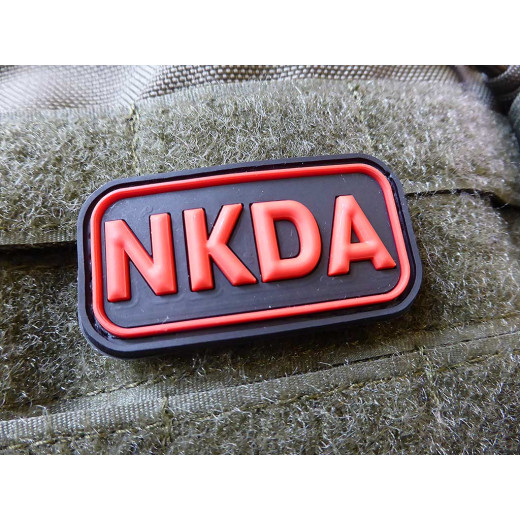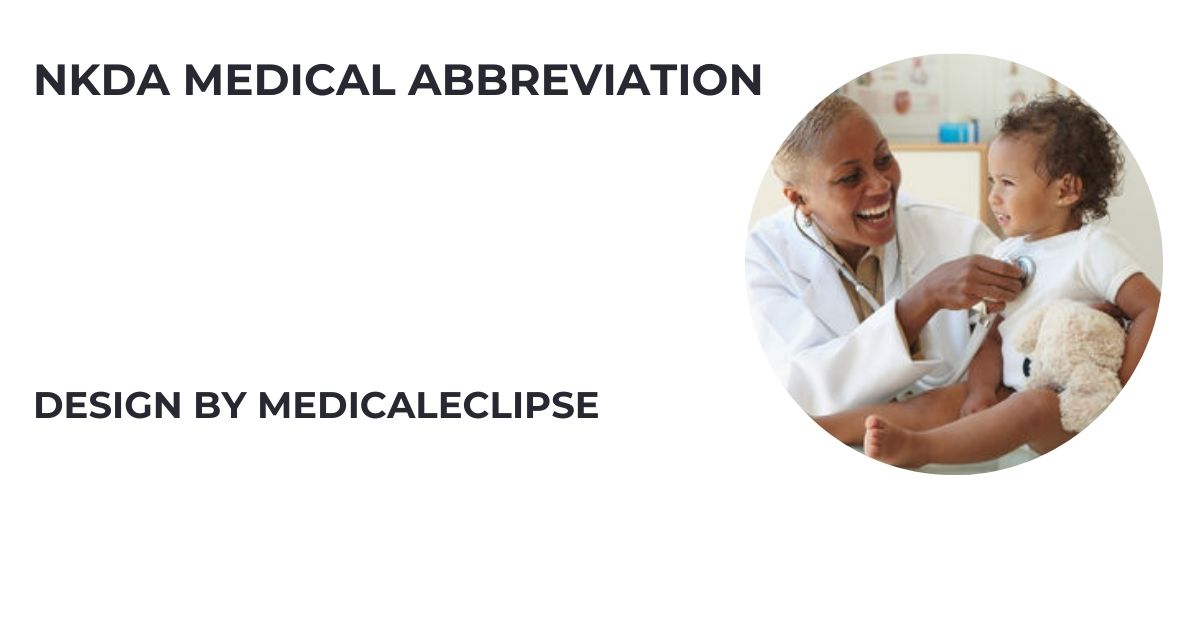NKDA stands for “No Known Drug Allergies,” a term in medical documentation indicating that a patient has no reported allergies to medications. It helps healthcare providers make safe, informed treatment decisions and ensures effective care.
In this article, we will explore the meaning, importance, and implications of “NKDA” (No Known Drug Allergies) in medical documentation. Understanding this term is crucial, especially for patients and medical professionals.
What Does NKDA Stand For?

NKDA stands for “No Known Drug Allergies.” It is a medical abbreviation commonly used in patient records to indicate that the individual has no documented allergies to medications. This term helps healthcare providers make informed decisions about prescribing medications.
Why Is NKDA Important?
Accurate documentation of drug allergies is vital for safe medical care. If a patient is labeled as NKDA, it assures doctors and pharmacists that there are no known risks associated with administering standard medications. However, it’s essential to keep this information up to date to prevent potential allergic reactions.
Unrecorded allergies or reactions can lead to severe consequences. By clearly documenting “NKDA” or any known drug allergies, healthcare teams can avoid unnecessary delays in treatment and reduce the risk of adverse events. This simple notation serves as a critical safeguard in patient care, ensuring a seamless interaction across various healthcare touchpoints.
Common Scenarios Where NKDA Is Used:
- Medical Records: NKDA is frequently noted during hospital admissions or routine checkups to provide a comprehensive view of a patient’s health.
- Prescription Reviews: Pharmacists check this information to ensure safe dispensing of medications and prevent interactions with known allergens.
- Emergency Situations: Quick reference to NKDA status helps in urgent care settings where timely treatment is critical and decisions need to be made swiftly.
- Surgical Procedures: Before surgeries, anesthesiologists and surgeons rely on NKDA status to determine appropriate medications, such as anesthesia and pain relievers.
Also Read: The Role of Couples Counseling Before Marriage
How Healthcare Providers Confirm NKDA Status
Healthcare providers follow rigorous procedures to confirm NKDA status. This process typically includes:
Patient Interviews:
Direct questioning about past allergic reactions to medications or other substances. This step allows healthcare providers to gather firsthand information from the patient regarding their allergy history. It’s crucial to ask about any mild, moderate, or severe reactions. Clear communication helps ensure that no potential allergies are overlooked during medical assessments.
Reviewing Medical History:
Cross-referencing past records for any documentation of drug reactions. Healthcare providers carefully examine a patient’s previous medical files to check for any recorded allergies. This process includes reviewing any previous treatments, surgeries, or hospital visits that may have documented allergic reactions. By referencing a patient’s medical history, providers can gain more insight into potential allergies that were previously encountered.
Allergy Testing:
Conducting tests if there is uncertainty or incomplete information about a patient’s allergy history. Allergy testing involves a variety of methods, such as skin tests, blood tests, or controlled medication exposure. These tests help healthcare providers clarify any ambiguity in the patient’s allergy history. Allergy testing is an important step if the patient’s past records or interview responses don’t provide sufficient clarity about potential drug allergies.
Benefits of Proper Allergy Documentation

Proper documentation of allergy status, including NKDA, provides numerous benefits for both patients and healthcare providers. These benefits include:
- Enhanced Patient Safety: Clear allergy records prevent harmful medication errors and adverse drug reactions.
- Improved Treatment Outcomes: Accurate records enable healthcare teams to choose the most effective and safe medications.
- Streamlined Medical Processes: Up-to-date allergy documentation reduces delays in decision-making during emergencies or surgeries.
- Better Communication: Ensures all healthcare professionals involved in a patient’s care are aware of their allergy status.
By maintaining accurate records, patients can enjoy a safer and more efficient healthcare experience while providers gain confidence in prescribing treatments.
What If You’re Unsure About Drug Allergies?
If you are uncertain about your drug allergy status, inform your healthcare provider. They may recommend allergy testing or a thorough review of your medical history. Testing can include skin prick tests, blood tests, or monitored exposure to specific medications under medical supervision.
These evaluations help identify potential triggers and ensure your safety during treatment. Proactively addressing uncertainty about drug allergies can prevent serious complications and enhance your overall healthcare experience.
Updating Your NKDA Status:
Keeping your medical records accurate is essential. Notify your healthcare provider immediately if you experience any adverse reactions to medications, as this could change your status from NKDA to having a specific drug allergy.
It’s equally important to periodically review your records during medical visits to ensure all information is current. Encourage family members and caregivers to do the same, particularly if they play an active role in managing your healthcare.
What If NKDA Is Incorrectly Noted?
Errors in recording NKDA can lead to potentially dangerous situations. For instance, if a patient with a known drug allergy is mistakenly marked as NKDA, they may be exposed to harmful medications. On the other hand, falsely labeling someone with an allergy they don’t have can restrict treatment options unnecessarily.
These mistakes can cause delays in treatment or lead to ineffective care plans. Regularly updating and verifying your allergy status with your healthcare provider minimizes risks and ensures the best possible medical outcomes.
FAQ’s
1. What does NKDA mean?
NKDA stands for “No Known Drug Allergies,” indicating no documented medication allergies in a patient’s records.
2. Why is NKDA important?
It helps healthcare providers ensure safe treatment by avoiding allergic reactions to medications.
3. Where is NKDA commonly used?
NKDA is noted in medical records, prescriptions, emergencies, and surgeries to guide safe care.
4. How can NKDA status be confirmed?
Through patient interviews, medical history reviews, and allergy testing if needed.
5. What should I do if my NKDA status changes?
Inform your healthcare provider immediately to update your records accurately.
Conclusion
NKDA, meaning “No Known Drug Allergies,” is essential in medical documentation for ensuring safe, effective care. By understanding its importance, patients can better communicate with providers and enhance health outcomes. Staying informed, proactive, and regularly updating records fosters trust with healthcare teams and ensures safety during treatments, preventing potential drug reactions and supporting optimal care.

Leave a Reply